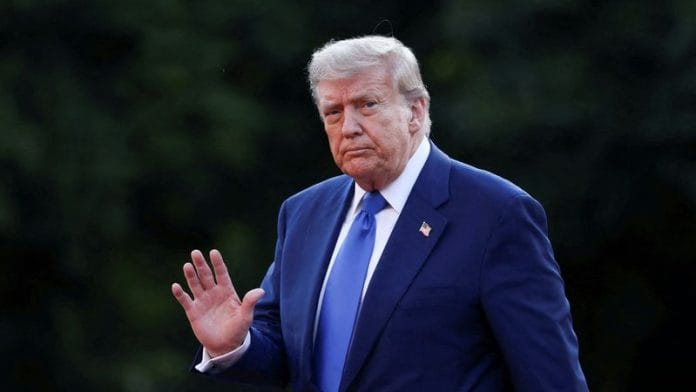American President Donald Trump has earned the unique distinction of supposedly facilitating not one but three ceasefires around the globe. If the Nobel Peace Prize is not awarded to him soon enough, he might be tempted to start another war somewhere and force the parties to a ceasefire. But there is a strange parallel in all three ceasefires that Trump has taken credit for: none of the parties in these three conflicts have accepted his intervention. Not one of the three conflicts has even ended for good. The Russia-Ukraine war – which has now been relegated to the back pages of newspapers – is still ongoing. India has categorically denied Trump’s involvement in the “military pause” with Pakistan, and the Israel-Iran war continues as both parties accuse each other of ceasefire violations. Which war, then, has Donald Trump stopped?
In a recent social media post, Trump claimed that both Iran and Israel approached him to ensure peace, and that they will see “tremendous love, peace and prosperity in their future.” As Trump was patting himself on the back for effecting a ceasefire, Iran fired short and medium-range ballistic missiles at the Al Udeid Airbase in Qatar, the largest US military facility in the Middle East. Far from accepting US involvement in the non-existent ceasefire, Iran might not even stop its attacks on US and Israeli targets as long as it is militarily capable of doing so.
Besides Trump, there seem to be two more claimants to the uncertain ceasefire in the Middle East. According to some news reports, Qatari Prime Minister Sheikh Mohammed bin Abdulrahman Al-Thani secured Iran’s agreement on a ceasefire, which Trump then announced to the world on social media.
Iran’s ambassador to the United Nations, Amir Saeid Iravani, upheld his country’s ‘peaceful nuclear programme’ and condemned Israel and the US for the ‘unlawful’ attack on its nuclear facilities. More importantly, in a surprising move, he made no reference to Trump for the ceasefire. So, where do the US president’s ceasefire claims stand in the face of shifting global alliances?
No credit to Trump
Soon after the US attack on Iran’s nuclear facilities, Iranian foreign minister Abbas Araghchi met with Russian President Vladimir Putin, who wholeheartedly supported Iran against Israel as Tehran mounted a virulent counterattack. With this, the decades-old ties between the two countries further cemented the fundamentals of the Russia-Iran axis. And this could lead to a realignment of regional forces.
Iranian defence minister Brigadier General Aziz Nasirzadeh also claimed Russian support to his country’s fight with the ‘Zionists’ and was validated by Russian defence minister Andrey Belousov, who said: “Their (US and Israel’s) true aim is weakening the Islamic Republic and spreading chaos throughout the region. Russia monitors all developments and will support Iran.” Nasirzadeh also met his SCO (Shanghai Cooperation Organisation) counterparts to drum up support for his country’s cause.
The twin objectives of the US and Israel—to decapacitate Iran’s nuclear defence programme and pursue regime change—are now being severely contested in the US itself. Reports supposedly prepared by the US Defense Intelligence Agency (DIA) argue that the US Air Force strikes on three of Iran’s nuclear facilities last weekend did not destroy the core components of its nuclear programme – likely only setting it back by a few months. This not only challenges President Donald Trump’s repeated claims that the strikes “obliterated” Iran’s nuclear enrichment facilities, but also his credibility as a leader and strategist.
Meanwhile, the Director General of the International Atomic Energy Agency (IAEA), Rafael Mariano Grossi, when asked about the 900 pounds of enriched uranium that Iran is allegedly in possession of, said: “We do not have information of the whereabouts of this material”.
Also read:
Trump belittles his position
Whatever the case, the jury is out on Iran’s nuclear programme, which is probably intact with minimum damage or can be rebuilt in lesser time. Iran’s UN representative admitted to the damage to its nuclear facilities but has not elaborated on the extent of the damage. Iran’s parliament has also passed a bill to suspend cooperation with the IAEA, stipulating that any future inspection by the IAEA would need the approval of the Supreme National Security Council. The bill must be approved by Iran’s unelected Guardian Council to become law, reported Reuters.
On the issue of regime change, both Washington and Tel Aviv would have noticed a highly charged, nationalist atmosphere in Tehran after these attacks, which have become an insulation against attempts to stage a coup against Ayatollah Khamenei and dissolve the present Majles-e Shurâ-ye Eslâmi (Parliament of Iran). The regime changers may have to wait for another opportune moment.
By repeatedly claiming to have brokered ceasefires using trade terms as bait, Trump has not only belittled his position as the president of a superpower but also exposed the soft underbelly of the world order led by the US. The challenge to American global leadership comes not from outside but from the Oval Office.
Seshadri Chari is the former editor of ‘Organiser’. He tweets @seshadrichari. Views are personal.
(Edited by Zoya Bhatti)






